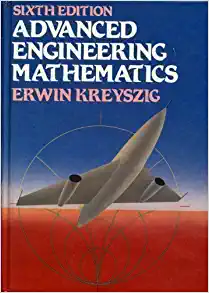Question
To test the efficacy of three different brands of fertilizer, you grow seedlings on each of the brands, plus a control with no fertilizer, for
To test the efficacy of three different brands of fertilizer, you grow seedlings on each of the brands, plus a control with no fertilizer, for a total of four treatments. At the end of two months, you weigh each seedling.
Here are the data, in grams:
fertilizerA fertilizerB fertilizerC control
12 15 11 9
15 16 13 11
11 14 17 10
14 18 14 13
12 18 12 9
14 13 14 11
The question of interest was whether fertilizer affects plant growth.
Let's say that you want to testall possiblepairwise comparisons of treatments. Consider this anunplannedexploration of the data.
How many pairwise comparisons can you do?
Which type of post-hoc test should you be using here? Choose all that are correct.
- A.
- A prioriplanned comparison post-hoc tests
- B.
- Post prioriunplanned comparison post-hoc tests
- C.
- Bonferroni's t-test
- D.
- Tukey's honestly significant difference test
Use the 10 steps to carry out the pairwise comparisons. Then, answer the following LC questions.
What will the null and alternative hypotheses be for these comparisons?
- A.
- For each comparison, the null hypothesis will be i=j and the alternative hypothesis will be ij.
- B.
- For each comparison, the null hypothesis will be ij or ij and the alternative hypothesis will be i
j, depending whether the estimate of the mean for treatment i or treatment j was observed to be higher.
How will you use in these comparisons?
- A.
- Use /2=0.025 because this is a two-tailed test.
- B.
- Use /6=0.0083 because this is a one-tailed test but six total comparisons will be done.
- C.
- Use =0.05 because this is a one-tailed test.
- D.
- Use =0.05 because the way this test works is it applies the chosen alpha as the exact family-wise alpha across the entire set of comparisons, and because each test is automatically already two-tailed so alpha does not need to be split across tails.
- E.
- Use /4=0.0125 because there are four treatments in this experiment.
The same value of QCRIT will be used for each comparison.
What is the appropriate value of QCRIT here? Give your answer to three decimal places.
What is the value of the term QCRITMSERRn that will be used to carry out the multiple comparisons using Tukey's honestly significant difference?
Give your answer to four decimal places.
For which of the following comparisons do the HSD rangesnotinclude zero?
- A.
- fertilizer A vs B
- B.
- fertilizer A vs C
- C.
- fertilizer A vs control
- D.
- fertilizer B vs C
- E.
- fertilizer B vs control
- F.
- fertilizer C vs control
What do you conclude, overall? Select all that are correct.
- A.
- Each fertilizer is signficantly different than the control. But we can't say if the fertilizers increase or decrease plant growth, relative to the control, from this analysis.
- B.
- Each fertilizer is signficantly different than the control. Relative to the control, the fertilizers all increase plant growth.
- C.
- There are no statistically significant differences among the treatments.
- D.
- Some of the fertilizers are significantly different than the control, in that they increase plant growth.
- E.
- Some of the fertilizers are significantly different than the control, but from this analysis we can't say whether they increase or decrease growth, relative to the control.
- F.
- All three of the fertilizers are significantly different from each other.
- G.
- None of the three fertilizers are significantly different from each other.
Step by Step Solution
There are 3 Steps involved in it
Step: 1

Get Instant Access to Expert-Tailored Solutions
See step-by-step solutions with expert insights and AI powered tools for academic success
Step: 2

Step: 3

Ace Your Homework with AI
Get the answers you need in no time with our AI-driven, step-by-step assistance
Get Started


